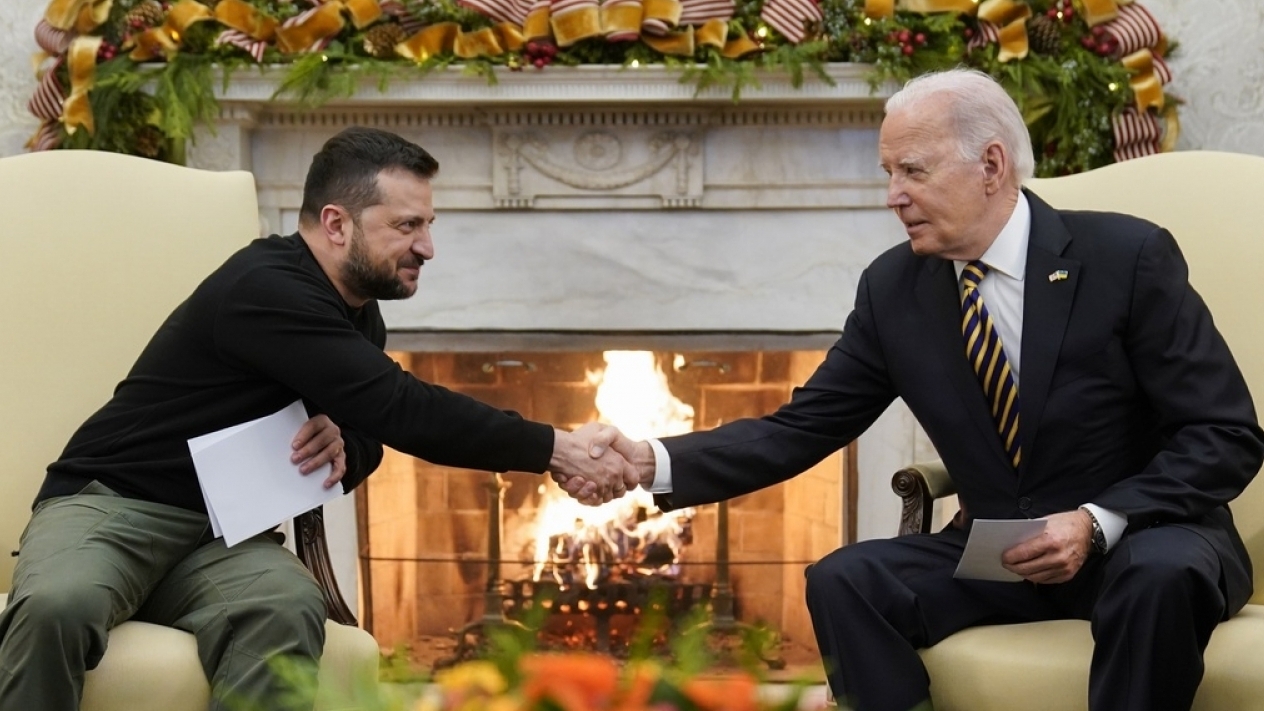The last such help - for now. Ukraine is running out of money. "Huge risk for country"
Estimated reading time: 3 minutes
In the face of escalating Russian aggression, Ukraine grapples with a financial squeeze as vital U.S. aid ends. With Congressional approval uncertain and EU support delayed, Kyiv faces tough choices.

US announces $250 million security assistance package for Ukraine
The White House has approved approximately $250 million in support for Ukraine to defend itself against Russian aggression. This marks the last such package, as subsequent ones require prior approval by Congress. However, a problem looms without further support, particularly concerning the payment of salaries and pensions.
The Department of State has announced that Americans will provide Ukraine with a military aid package worth $250 million. According to Secretary of State Antony Blinken, this package includes anti-aircraft, anti-tank, and artillery ammunition.
"Our assistance was critical in supporting our Ukrainian partners as they defend their country and freedom from Russia's aggression"
Blinken emphasized in his statement.
This marks the final aid installment for Kyiv from Washington this year. Additionally, it is the last support the United States can provide without requiring Congress's approval, made possible by sourcing weapons from existing Pentagon stocks, which doesn't necessitate consent from American parliamentarians.
Ukraine will receive weapons from the US for $250 million
This aspect is crucial, as while there is still considerable support for military aid for Ukraine within Joe Biden's Democratic Party, the same cannot be said for the Republican Party. A recent demonstration of this occurred when all Republicans in the US Senate voted against a $50 billion emergency aid package for Ukraine and $14 billion for Israel.
Even independent Senator Bernie Sanders, who typically aligns with the Democrats, opposed it, citing concerns about the “Israeli” component of the package, as reported by the BBC. Republicans are pushing for accompanying measures to include tightened security on the US-Mexico border.
Ukraine is running out of money
Ukraine is facing financial constraints, with the next session of Congress on this matter not scheduled until January. Urgent support is needed, as external aid requirements for the next year reach $37 billion. Issues extend beyond the United States, as in mid-December, EU countries failed to agree on a package of EUR 50 billion in financial aid for Kyiv in the form of loans and grants.
Hungary's opposition led to the aid's blockage, prompting Brussels to consider support based on a different mechanism, similar to that used at the beginning of the coronavirus pandemic. However, this deliberation won't occur before February 1, and the EU has pledged funds by the end of March.
Meanwhile, Kyiv warns that without the promised funds at the beginning of next year, it may be compelled to delay the payment of salaries to 2 million budget employees and pensions to 10 million citizens, reports the Financial Times, citing statements from the deputy prime minister and head of the Ukrainian Ministry of Finance, Yulia Svyrydenko.
Svyrydenko stated that Ukraine will prioritize defense and debt servicing, leading to a "huge risk of underfunding some social sectors". Emphasizing the urgency of support from partners, she added that without funds, the Ukrainian economy will enter "survival" mode.



